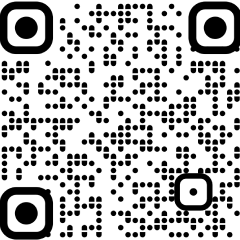LOS ANGELES: Taking a cue from early 20th century radio<\/a> technology, scientists have created a novel quantum<\/a> light source to help improve internet<\/a> security<\/a>. 洛杉矶:从20世纪早期广播技术,科学家们创造了一个小说量子光源,以帮助改善互联网安全。
\n
Researchers from Stanford University<\/a> in US created the technology that may someday serve as the basis for quantum communication.
\n
In the physics of quantum communication, standard lasers<\/a> are actually not useful for secure communication because they emit what is called 'classical' light.
\n
\nData eavesdroppers could extract any data being carried via classical light without detection. In contrast, a quantum internet would be based on 'quantum' light, in which a single unit of light - a single photon - cannot be measured without being destroyed.
\n
\nTherefore, an efficient source of quantum light would enable perfectly secure communication.
\n
Researchers have been working for years to develop various nanoscale lasers and quantum technologies<\/a> that might help conventional computers communicate faster and more efficiently using light instead of electricity.
\n
\nThey realised that a modified nanoscale laser can be used to efficiently generate quantum light for communication.
\n
\n\"The problem is that the quantum light is much weaker than the rest of the light coming from such a modified laser - it is difficult to pick up,\" said Jelena Vuckovic from Stanford University.
\n
\n\"So, we created a way to filter out the unwanted light, allowing us to read the quantum signal much better,\" Vuckovic said.
\n
\nThe filtering works in a fashion similar to the way noise-cancelling headphones operate, only with light, instead of sound, researchers said.
\n
\nWith the headphones, a sensor actively gauges the frequency of relatively constant ambient sound - the rumble of traffic, the drone of an airplane engine, the thrum of a refrigerator - and produces a similar pattern, which can be used to cancel out the undesirable sound.
\n
\n\"Some of the light coming back from the modified laser is like noise, preventing us from seeing the quantum light. We cancelled it out to reveal and emphasise the quantum signal hidden beneath,\" said Kevin Fischer from Stanford University.
\n
\nResearchers adapted an interference technique borrowed from 1930s-era radio engineering to cancel the unwanted classical light.
\n
\nThey first figured out what the 'noise' looks like and played it back. By carefully adjusting how the cancelling light and the classical light overlap, the unwanted light is cancelled and the once-hidden quantum light is shown.
\n
\n\"It provides us with a practical pathway to secure quantum communications,\" said Vuckovic.
\n
\nThe research was published in the journal Nature Photonics.\n\n<\/p><\/body>","next_sibling":[{"msid":50773804,"title":"Airtel, Vodafone, Idea Cellular and RCom may skip bid for 700 Mhz spectrum: Fitch","entity_type":"ARTICLE","link":"\/news\/airtel-vodafone-idea-cellular-and-rcom-may-skip-bid-for-700-mhz-spectrum-fitch\/50773804","category_name":null,"category_name_seo":"telecomnews"}],"related_content":[],"msid":50774003,"entity_type":"ARTICLE","title":"20th century quantum technology to help improve internet security","synopsis":"Researchers are working to develop nanoscale lasers and quantum technologies that might help computers communicate faster by using light instead of electricity.","titleseo":"telecomnews\/20th-century-quantum-technology-to-help-improve-internet-security","status":"ACTIVE","authors":[],"Alttitle":{"minfo":""},"artag":"PTI","artdate":"2016-01-29 18:32:50","lastupd":"2016-01-29 18:33:35","breadcrumbTags":["Internet","Radio","security","Technologies","Nano","Quantum","Stanford University","lasers"],"secinfo":{"seolocation":"telecomnews\/20th-century-quantum-technology-to-help-improve-internet-security"}}" data-authors="[" "]" data-category-name="" data-category_id="" data-date="2016-01-29" data-index="article_1">
的研究人员斯坦福大学在美国创建的技术可能会有一天作为量子通信的基础。
物理学的量子通信标准激光实际上是不用于安全通信,因为他们排放的所谓“经典”。
数据窃听者可以通过经典光没有任何数据提取检测。相比之下,一个量子互联网将基于“量子”的光,一个单元的光-单个光子无法衡量而不会被摧毁。
因此,一个高效的量子光源将使完美的安全通信。
研究人员多年来一直在开发各种纳米激光器和量子技术可能帮助传统计算机交流更快和更有效地通过光而不是电。
他们意识到改性纳米激光可以用来有效地生成光量子通信。
“问题在于,量子光远弱于其他来自这样一个修改激光——很难接,“伊莲娜辩护方说斯坦福大学。
“所以,我们创建了一个方法来过滤掉不必要的光线,让我们阅读量子信号更好,”辩护方说。
过滤的风格类似于消音耳机的运作方式,只有光,相反的声音,研究人员说。
积极与耳机,一个传感器仪表的频率相对稳定环境声——交通的隆隆声,无人驾驶飞机引擎,冰箱的敲打,并产生类似的模式,可以用来抵消不良的声音。
“一些的光从修改后的激光回来就像噪音,阻止我们看到光量子。我们取消了出来藏在揭示和强调量子信号,”斯坦福大学的凯文·费舍尔说。
研究者改编一个干扰技术是从1930年代无线电工程取消不必要的古典灯。
他们首先算出的‘噪音’是什么样子和播放。通过仔细调整如何取消光和经典的重叠,取消不必要的光量子光显示和隐藏。
“它为我们提供了一个实用的途径获得量子通信、“辩护方说。
这项研究发表在《自然光子学》杂志上。
LOS ANGELES: Taking a cue from early 20th century radio<\/a> technology, scientists have created a novel quantum<\/a> light source to help improve internet<\/a> security<\/a>.
\n
Researchers from Stanford University<\/a> in US created the technology that may someday serve as the basis for quantum communication.
\n
In the physics of quantum communication, standard lasers<\/a> are actually not useful for secure communication because they emit what is called 'classical' light.
\n
\nData eavesdroppers could extract any data being carried via classical light without detection. In contrast, a quantum internet would be based on 'quantum' light, in which a single unit of light - a single photon - cannot be measured without being destroyed.
\n
\nTherefore, an efficient source of quantum light would enable perfectly secure communication.
\n
Researchers have been working for years to develop various nanoscale lasers and quantum technologies<\/a> that might help conventional computers communicate faster and more efficiently using light instead of electricity.
\n
\nThey realised that a modified nanoscale laser can be used to efficiently generate quantum light for communication.
\n
\n\"The problem is that the quantum light is much weaker than the rest of the light coming from such a modified laser - it is difficult to pick up,\" said Jelena Vuckovic from Stanford University.
\n
\n\"So, we created a way to filter out the unwanted light, allowing us to read the quantum signal much better,\" Vuckovic said.
\n
\nThe filtering works in a fashion similar to the way noise-cancelling headphones operate, only with light, instead of sound, researchers said.
\n
\nWith the headphones, a sensor actively gauges the frequency of relatively constant ambient sound - the rumble of traffic, the drone of an airplane engine, the thrum of a refrigerator - and produces a similar pattern, which can be used to cancel out the undesirable sound.
\n
\n\"Some of the light coming back from the modified laser is like noise, preventing us from seeing the quantum light. We cancelled it out to reveal and emphasise the quantum signal hidden beneath,\" said Kevin Fischer from Stanford University.
\n
\nResearchers adapted an interference technique borrowed from 1930s-era radio engineering to cancel the unwanted classical light.
\n
\nThey first figured out what the 'noise' looks like and played it back. By carefully adjusting how the cancelling light and the classical light overlap, the unwanted light is cancelled and the once-hidden quantum light is shown.
\n
\n\"It provides us with a practical pathway to secure quantum communications,\" said Vuckovic.
\n
\nThe research was published in the journal Nature Photonics.\n\n<\/p><\/body>","next_sibling":[{"msid":50773804,"title":"Airtel, Vodafone, Idea Cellular and RCom may skip bid for 700 Mhz spectrum: Fitch","entity_type":"ARTICLE","link":"\/news\/airtel-vodafone-idea-cellular-and-rcom-may-skip-bid-for-700-mhz-spectrum-fitch\/50773804","category_name":null,"category_name_seo":"telecomnews"}],"related_content":[],"msid":50774003,"entity_type":"ARTICLE","title":"20th century quantum technology to help improve internet security","synopsis":"Researchers are working to develop nanoscale lasers and quantum technologies that might help computers communicate faster by using light instead of electricity.","titleseo":"telecomnews\/20th-century-quantum-technology-to-help-improve-internet-security","status":"ACTIVE","authors":[],"Alttitle":{"minfo":""},"artag":"PTI","artdate":"2016-01-29 18:32:50","lastupd":"2016-01-29 18:33:35","breadcrumbTags":["Internet","Radio","security","Technologies","Nano","Quantum","Stanford University","lasers"],"secinfo":{"seolocation":"telecomnews\/20th-century-quantum-technology-to-help-improve-internet-security"}}" data-news_link="//www.iser-br.com/news/20th-century-quantum-technology-to-help-improve-internet-security/50774003">



评论
现在评论 阅读评论(1)所有评论
找到这个评论进攻?
下面选择你的理由并单击submit按钮。这将提醒我们的版主采取行动